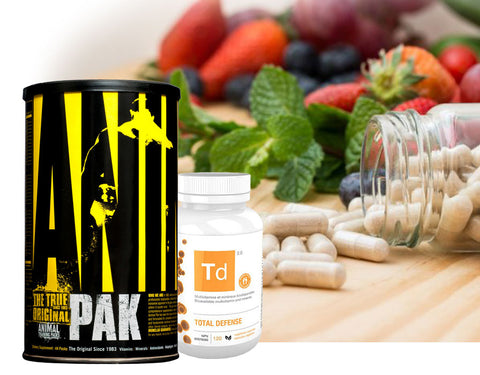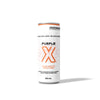Are you pregnant or planning to get pregnant soon? Are you wondering which supplements you should take during your pregnancy and which ones to avoid? This article is for you! The world of supplements is already complex enough, so add to that the need to unpack what's safe and what's not during pregnancy. Phew! We've got you covered.
Important note: Caution is often preferred in the absence of specific data on the safety and efficacy of certain ingredients, especially during this crucial period in the development of an unborn child!
In fact, the words "consult a physician if you are pregnant or breast-feeding" on the packaging of certain products, particularly supplements, are often included as a precautionary measure and a sign of responsibility.
Before getting to the heart of the matter, I'd like to make it clear that my recommendations are general and that it's always best to check with your doctor if you wish to consume specific products or supplements during your pregnancy, especially if you're taking other medications that could potentially interact or if you have any known health problems.
Safe supplements during pregnancy
Omega-3 :
Found in fatty fish and flaxseed, omega-3s are beneficial for the development of the baby's brain and nervous system. Omega-3s containing DHA are particularly recommended.
Iodine :
Iodine plays an important role during pregnancy, supporting thyroid function and promoting fetal development. The fetus absorbs some of the mother's iodine, which can lead to a deficiency in the mother. Given the difficulty of obtaining sufficient iodine through diet alone, supplementation is often recommended during pregnancy.
Magnesium:
Magnesium can help prevent the cramps and muscle retention common during pregnancy.
Its positive impact on sleep (promoting muscle relaxation) can also be beneficial during this period when rest is very important, but also often more difficult due to the well-known discomforts caused by pregnancy.
Magnesium can also help alleviate morning sickness (let me know how it goes...!).
Vitamin D:
Vitamin D helps keep your bones healthy! It's even more important to consume in northern countries where sun exposure is limited, especially during the winter months.
During pregnancy, vitamin D requirements increase to meet the growing demand for calcium, essential for fetal bone and skeletal development.
Folic acid:
A well-known supplement, recommended by doctors for use in the months preceding pregnancy and during the first three months. Folic acid contributes significantly to the prevention of potential complications such as certain malformations.
Multivitamin:
Although not essential, a multivitamin can be useful if you think you may have certain deficiencies. However, be sure to calculate your total intake to avoid excesses. For example, if you're taking magnesium and vitamin D, check to see if the multivitamin contains them too!
Supplements not recommended during pregnancy
Fat burners (fat burners) :
Avoid them because of the high caffeine content they often contain. Limit caffeine in general, including coffee, to about one cup a day.
Adaptogenic herbs:
Some herbs, such as Ashwagandha and Rhodiola, are not recommended during pregnancy due to their potential impact on the immune system. Given their natural origin, the effects of these herbs may be poorly understood, and there are few studies on the subject. It is strongly recommended to consult a health professional before using them.
Training during pregnancy
As a kinesiologist by training, I also wanted to take some time to talk to you about training during pregnancy. First and foremost, get a health professional's approval for your workout program while you're pregnant.
Here are some additional tips I can give you to ensure a safe workout for you (and your unborn baby):
- Stay in the aerobic zone (be able to talk during exercise).
- Adjust your program as your body changes.
- Avoid direct abdominal exercises to prevent pronounced abdominal separation (crunches, etc.).
- As pregnancy progresses, opt for safe, stable exercises.
- Avoid exercises involving jumping.
Training during pregnancy can reduce the risk of complications, but you should respect your limits and listen to your body. The aim is to stay active, without necessarily trying to surpass your limits during this period. If you've never exercised before, pregnancy may not be the best time to start a new training plan.
If you have any questions, I invite you to consult a health professional or kinesiologist who can guide you through your pregnancy!

Félix Daigle, Shop Santé Ambassador












Comments (1)
Bonjour!
Est-ce que nous pouvons consommer les protéines en vrac du shop santé durant la grossesse? Je trouve que je peux faire de super collation avec les protéines, mais je ne sais pas si c’est correcte.
Merci!